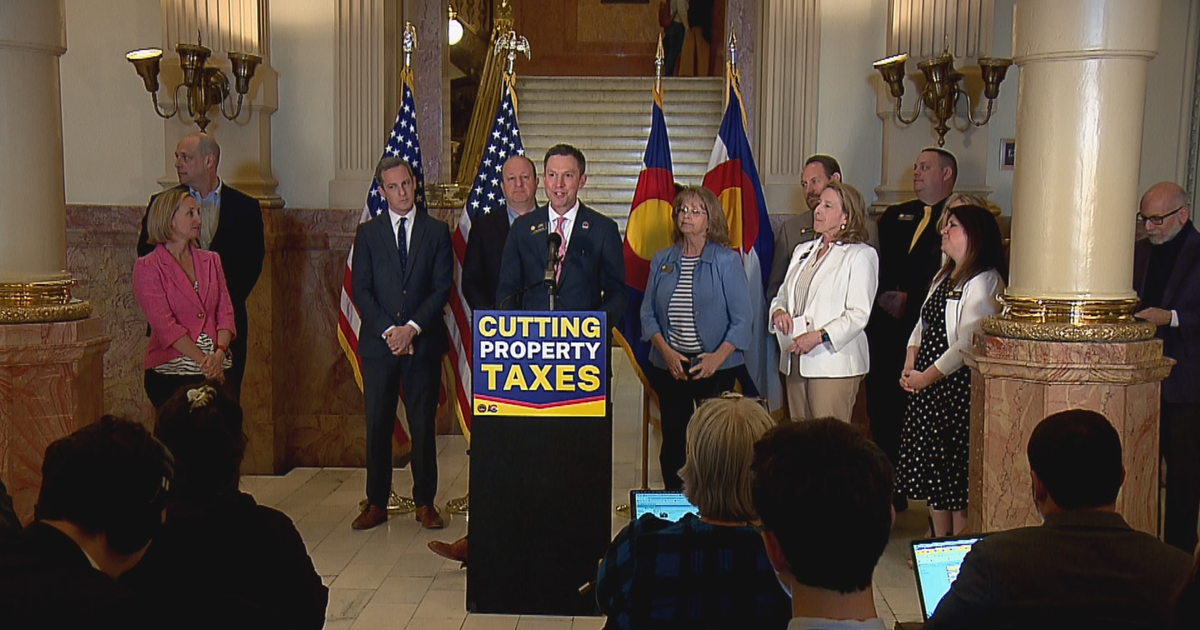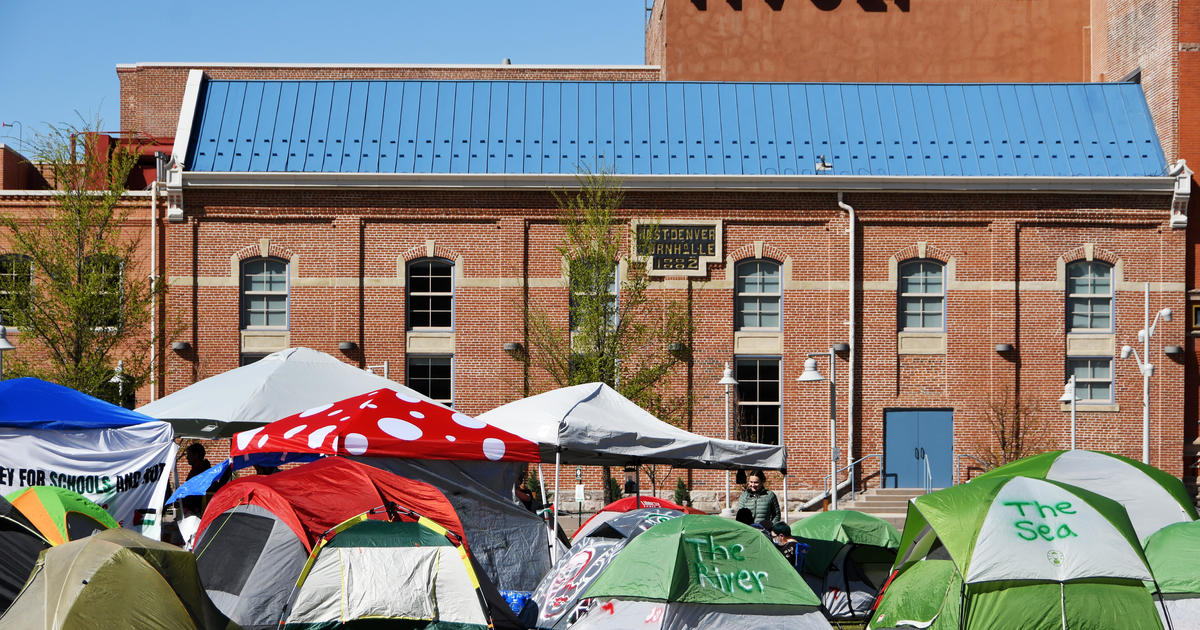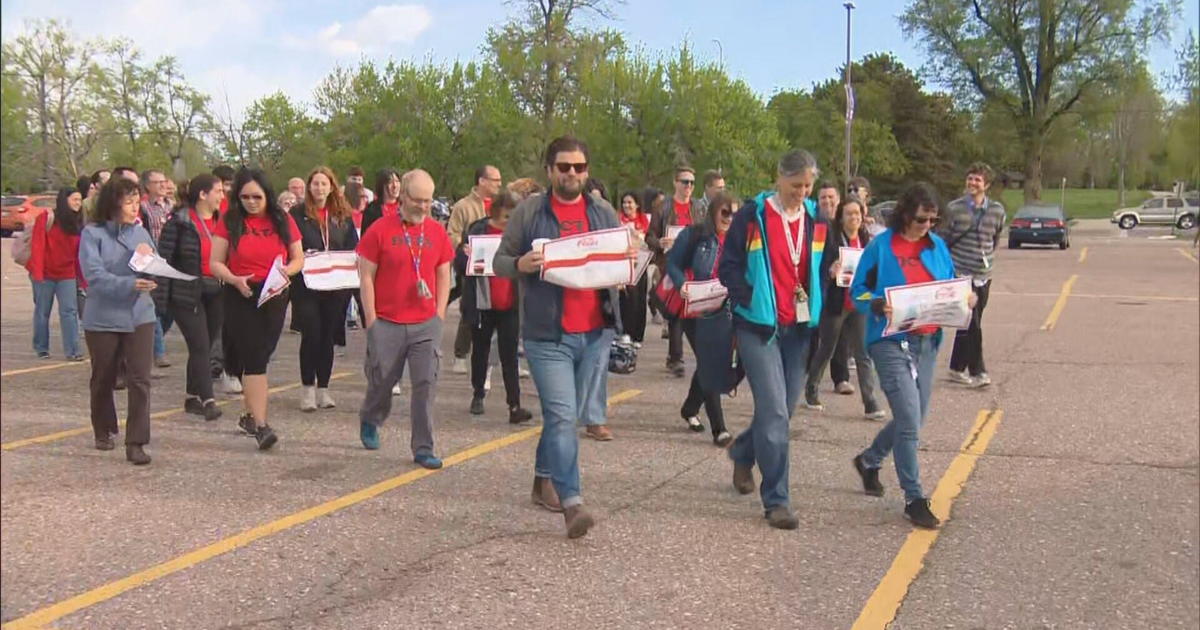Divided Colorado Legislature Wraps Year Of Scant Agreement
DENVER (AP) - A divided legislature in an election year was a recipe for Colorado lawmakers to fall short on the state's most urgent priorities: a scarcity of affordable housing and near-stagnant funding for underfunded K-12 schools, roads and higher education.
This year's 120-day legislative session that ended Wednesday turned out almost as expected. Democrats who control the House pushed some social programs, defended women's rights, and tried to drive a wedge into the 1992 constitutional tax-and-spend restraints called the Taxpayer's Bill of Rights, or TABOR.
Republicans who lead the Senate did all they could to limit the growth of government in this fast-growing state and successfully defended TABOR, which restricts what government can spend. At the beginning and at the end, they blamed Colorado's fiscal woes on the cash-hungry elephant in the room — Medicaid spending.
They insist that Democrats' decision to expand Medicaid —some of it as part of the federal health care overhaul, some of it because of changes instituted by Democrats themselves — must be addressed before Colorado can even discuss long-term spending in this rapidly growing state.
Colorado is spending about $2.5 billion this year on the health care plan for the needy.
"'Free' health insurance is bankrupting Colorado's budget," said Senate President Bill Cadman. "There are no accounting tricks or budget gimmicks that will solve the billion-dollar K-12 deficit or the $8 billion transportation backlog."
Democrats tried and failed to remove a $700 million Medicaid fund from the budget to free hundreds of millions for schools and roads. They also refused to allow voters to decide on a Republican proposal to issue $3.5 million in transportation bonds to improve Colorado's aging roadways.
Four months' worth of debate produced two baby-step bills to make housing more affordable for Coloradans old and new. A last-minute bid to create a presidential primary was as disorganized as the party caucuses it was meant to replace.
Bipartisan successes did emerge. Lawmakers crafted a $27 billion state budget for the fiscal year that starts July 1. It slightly raises K-12 funding, allots $210 million to roads and increases the general fund by $50 million. Democratic Gov. John Hickenlooper signed the document without a single line-item veto.
Other achievements: A pending solution to a quarter-century-old battle over who can sell full-strength beer; allowing out-of-state entrepreneurs to invest in Colorado's rapidly-maturing marijuana industry; crafting the nation's strictest law to protect student data privacy; and ensuring that young medical marijuana patients can take their medicine at K-12 schools.
Lawmakers eliminated mandatory life sentences without parole for youth offenders. They adopted limits on police chokeholds and youth solitary confinement. Inspired by the Bill Cosby allegations, they doubled the statute of limitations for victims to seek sexual assault charges.
"Some missed opportunities, but I think we did get a few things done, too," said House Republican Leader Brian DelGrosso.
- By JAMES ANDERSON and KRISTEN WYATT, Associated Press
(© Copyright 2016 The Associated Press. All Rights Reserved. This material may not be published, broadcast, rewritten or redistributed.)



